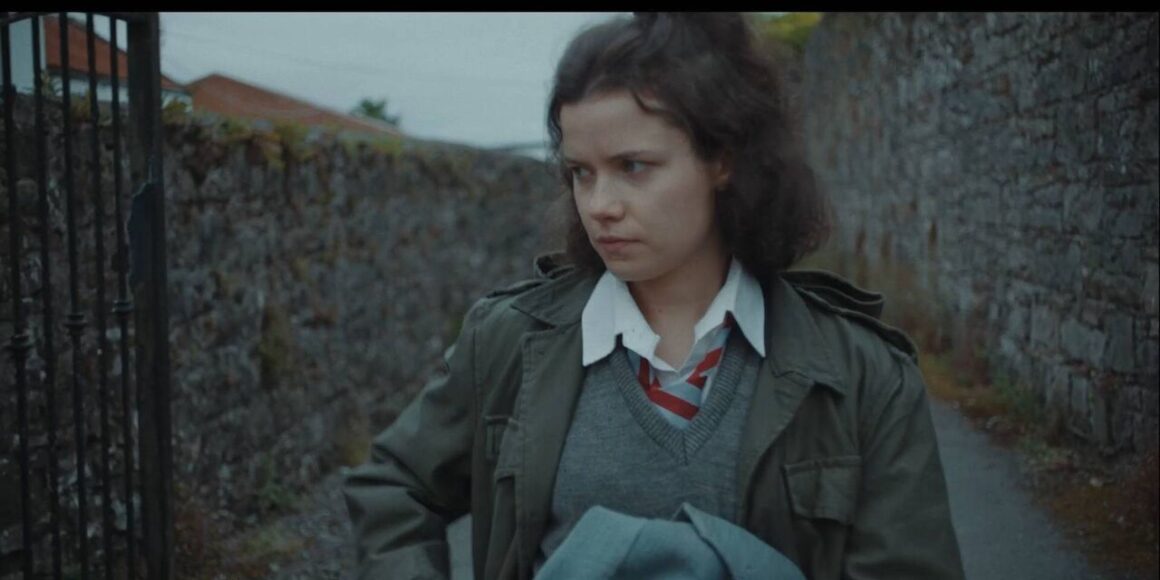Reviewed by Isidora Duran Stewart
This week marks five years since the referendum to repeal the 8th Amendment passed. This historic victory for abortion rights in Ireland was the culmination of a decades-long movement led by working-class young women and LGBTQI+ people.
Activists in the Repeal movement learned from the past. They looked to the shameful legacy of the 8th Amendment to strengthen the Yes campaign. This included a slew of tragic cases in the 1980s, one of which was the heartbreaking death of 15-year-old schoolgirl Ann Lovett. Ann, a victim of the culture of shame and silence foisted upon ordinary people by the Catholic church, died after giving birth in secret, four months after the 8th Amendment passed in 1984. Ann, written and directed by Ciaran Creagh, is a dramatisation of the last day of Ann Lovett’s life.
On realising that she will soon give birth, Ann scurries through her town of Granard, County Longford, for somewhere to hide, avoiding schoolteachers, priests, family, and friends, from all of whom she had concealed her pregnancy. From the very beginning of the film, when Ann (excellently portrayed by Zara Devlin) discovers that her water has broken and hides the wet sheets underneath her bed, all the way to the harrowing end where she gives birth alone to a stillborn baby; each scene soberingly conveys the reality of what James Joyce described as ‘priest-ridden’ Ireland.
After cleaning herself off in the morning, Ann rips a page from a science textbook denoting the female reproductive system and stuffs it into her bag along with a pair of scissors. When her friend, the only person who seems to know about her pregnancy, encourages her to tell someone, she says that there is no one to tell, other than “the nuns, the neighbours, Mam and Dad… all lining up wagging their fingers…” When two young boys discover her unconscious after having given birth, they go to the local priest who begrudgingly says “it’s a doctor you need” before acquiescing to lead a prayer of salvation around her in the grotto.
When Ann’s sister tells their mother that Ann has “had a baby”, she instinctively slaps her daughter across the face, before asking where Ann is. Later, after Ann tragically dies in a hospital, her distraught father repeats the victim-blaming question: “Why didn’t she ask for help?” After her death, it is revealed that there were ‘rumours’ and ‘suspicions’ about Ann — the content of which is not relayed, but this alone lays bare the culture of silence surrounding sexuality in Ireland at that time.
This is not the kind of film that one watches for the ending, particularly in Ireland where the case garnered profound media attention at the time as well as attracting a resurgent interest during the Repeal movement. Still, the screening for Ann was nearly full and the viewer demographic was overwhelmingly middle-aged and elderly women, many of which were very vocal in their support of Repeal.
At a time when abortion rights are under attack all over the world; the Catholic Church in Ireland is clamouring to maintain control (as seen with the National Maternity Hospital); gender-based violence is an epidemic; and a broad anti-feminist backlash is having a tangible impact on schools, workplaces and intimate relationships; it’s no wonder that watershed moments such as Ann Lovett’s tragic death still resonate so strongly.












